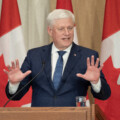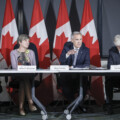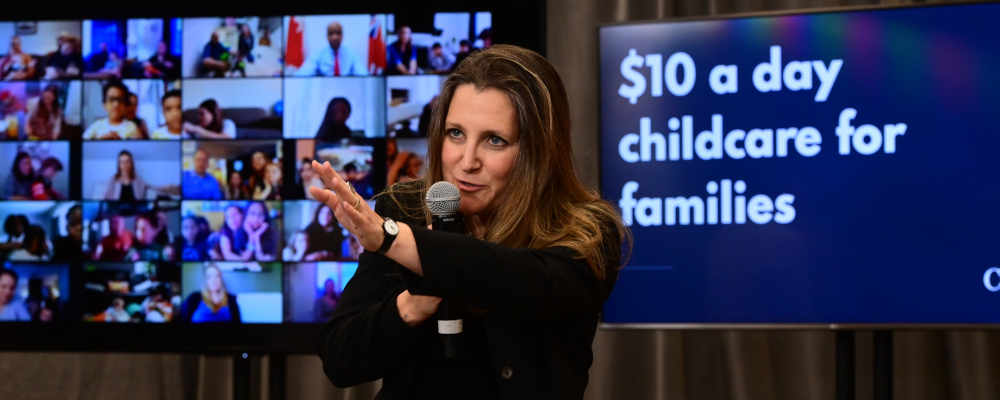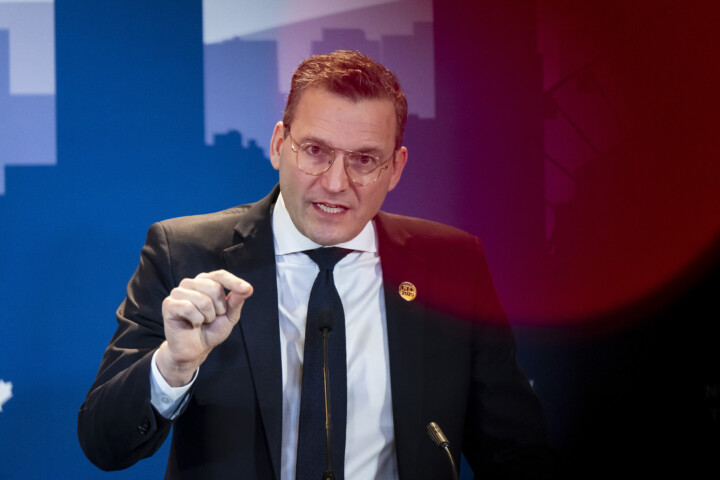It’s been over a month since Finance Minister Chrystia Freeland presented her government’s much-anticipated budget and the outlook hasn’t improved with time. The budget was a major missed opportunity that will leave us with little to show for all of the massive new spending except for larger and longer deficits and more and higher debt.
Rather than laying out a fiscally sustainable plan to get Canada back toward balanced budgets, last month’s budget is instead putting Canada on a path toward skyrocketing debt levels with no plan to end deficit spending now or in the future.
In her budget speech, Freeland argued that a $100 billion stimulus package, to be spent over the course of the next three years, was crucial to helping the Canadian economy recover from the fallout caused by COVID-19.
“This budget is a smart, responsible, and ambitious plan for jobs and growth, that is designed precisely to heal the specific wounds of the COVID-19 recession and to permanently strengthen Canada’s economic muscle,” said Freeland.
Several economists disagreed with this characterization at the time. Many experts instead expressed concern that Canada is on a fiscal trajectory that will lead to run-away spending and a massive, long-term increase in federal debt. That’s neither smart nor responsible.
“The fiscal situation we find ourselves in is that the government simply cannot afford major new spending programs,” said Philip Cross, a former chief economic analyst for Statistics Canada.
Other economists have since argued that stimulus spending is unnecessary, given the recent rebounding of the Canadian economy and the short-term nature of the COVID-19 economic crisis. Much of the government’s new spending will be rolled out long after Canada’s lost output is fully recovered.
Despite those misgivings, the Trudeau government insists that its plan is affordable. It points to historically low interest rates. This may be true as far as it goes but it’s presumptuous to think it won’t change at some point — especially in light of growing concerns about inflation.
The budget’s assumptions could therefore be significantly disrupted if interest rates were to rise. In fact, the budget’s own numbers indicate that Canada’s debt situation could get worse, and fast.
With $47.5 billion, the federal government could eliminate the GST or triple the Canada Child Benefit.
Consider the government’s rosiest scenario. Ottawa is projecting that interest payments on our national debt will cost taxpayers $22.1 billion in the current fiscal year, but that number is expected to rise to $39.3 billon by 2025-26. Worse still, the budget also notes that a one percentage point increase in interest rates by 2025-26 would mean that debt interest charges would rise to $47.5 billion. And that’s hardly an inconceivable scenario.
As an illustrative point, It’s worth thinking about the magnitude of these interest payments and what they represent relative to other budget line items. With $47.5 billion, the federal government could in theory eliminate the GST, more than double health-care transfers to the provinces, or triple the Canada Child Benefit.
The key takeaway? Although it’s justifiable for governments to enact deficit-financed spending on legitimate emergency costs such as vaccines, Ottawa’s ongoing deficit binge is far from costless: it will necessarily result in higher debt and in turn larger interest payments.
That’s money that would ostensibly be much better off in the wallets of hardworking taxpayers or used to meet the nation’s urgent health-care needs. Fiscal policy choices have consequences, and those consequences will be felt by taxpayers for generations to come.
It’s notable therefore that the government’s spending plans are far from temporary. In 2022-23, well after the immediate crisis of the pandemic has passed, the Trudeau government is planning to spend $428.7 billion. For context, the same government spent $355.6 billion in its last budget, presented just two short years ago. For permanent government spending to have increased by over $70 billion in such a short period of time is a sign that Canada’s finances are increasingly out of control.
If Minister Freeland is going to insist on spending more than $100 billion to “stimulate” the economy, she should do so by leaving more money in the hands of those who pay the bills: taxpayers.
For less than $100 billion, the Trudeau government could cut every taxpayer’s federal income tax bill in half for 2021. There is little doubt that most Canadians would rather see a major income tax cut than $101.4 billion in spending on government-picked projects. Better still, big new government programs come with big administrative costs, but there are no administrative costs for the government to leave more money in taxpayers’ pockets.
Some historical perspective is important here. Before going too far down the path toward fiscal unsustainability, the Trudeau government should remember the hard lessons Canada learned in the 1990s. The Chrétien government inherited a difficult fiscal situation. Former finance minister Paul Martin had to cut spending dramatically to avoid a fiscal cliff.
In other words, we’ve seen this movie before. From 1970 to 1997, the federal government ran deficits every year. Multiple governments let debt and deficits get out of control. Because of the actions of those governments, Canadians ultimately paid the price. Canada cannot and should not replicate the mistakes of the past. Sadly, the federal budget appears to indicate that that’s the direction the Trudeau government is planning to go in.
Finally, beyond the numbers themselves, the biggest problem with the federal government’s new spending plans is that they are short-sighted. While the finance minister claims to be making once-in-a-generation “investments” on behalf of Canadians, what she is really doing is taking decision-making power out of the hands of the next generation.
Our children and grandchildren should be able to make decisions about spending their taxpayer dollars. If Canada continues its current path of run-away government spending, they won’t have that opportunity because their taxes may be mostly gobbled up by interest payments on the debt we racked up. Massive levels of borrowing today means that future generations will have fewer choices tomorrow.
That’s something the Freeland chose to leave out of last month’s budget speech.
Recommended for You

Tale of two provinces: Alberta gains jobs as Ontario loses 67,000 positions

A new playbook for Canada-U.S. relations: How the University of Calgary’s New North America Initiative aims to reshape the continent’s politics

Canadians love big government—even though it’s holding us back

Stephen Harper got the big things right: The Weekly Wrap




Comments (0)